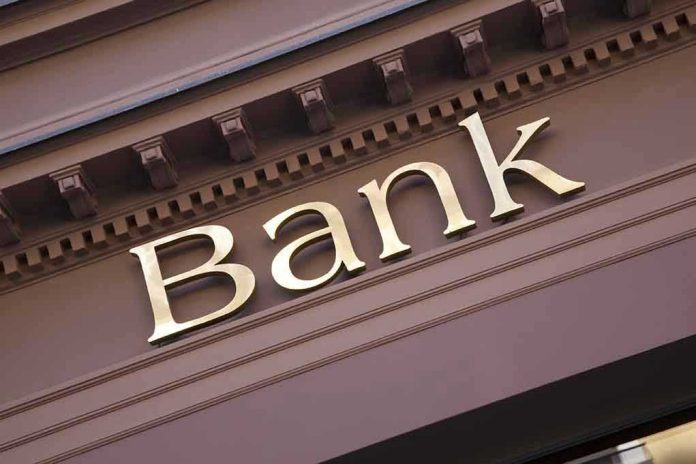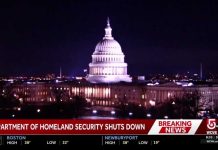
Forcing lenders to reverse years of politicized banking, the Trump administration’s new SBA order demands that banks restore financial services to clients previously “debanked” for their beliefs—drawing a hard line against leftist overreach and signaling a dramatic shift in federal oversight.
Story Snapshot
- The SBA requires all lenders to identify and reinstate clients denied banking for political or non-merit reasons by December 5, 2025.
- This is the first federal action directly targeting “debanking” on ideological grounds, with DOJ enforcement for non-compliance.
- Lenders must notify affected clients and report compliance to the SBA, facing significant regulatory scrutiny and deadlines.
- Federal agencies will remove “reputation risk” from banking guidance, aiming to end discrimination against conservative and targeted industries.
Trump’s Executive Order: Reversing Politicized Banking
President Trump’s Fair Banking Executive Order, issued in August 2025, marks the federal government’s first major move to confront the controversial practice of “debanking”—where banks deny or close accounts for clients based on non-financial reasons such as political views or industry type. Triggered by mounting complaints from conservative groups, firearms businesses, and others, the order compels the Small Business Administration (SBA) to enforce new rules ensuring that lenders restore access to clients previously denied services for their beliefs or affiliations. This directive challenges what many conservatives have identified as a years-long trend of “woke capitalism” weaponizing financial systems against constitutionally protected expression and legal industries.
The SBA’s compliance letters, sent to all lenders under its jurisdiction in August 2025, require institutions to review their client history and identify any debanking incidents not based on financial merit. By December 5, 2025, lenders must both notify affected clients and reinstate their accounts. Additionally, banks must submit detailed compliance reports to the SBA by January 5, 2026, outlining all remedial actions taken. The Department of Justice is empowered to pursue enforcement against any lender that fails to comply, emphasizing the administration’s intent to halt the politicization of basic financial access. For many, this represents a long-overdue defense of individual rights and a direct rebuke of previous regulatory regimes accused of targeting conservatives and disfavored industries.
Historical Context: From Operation Choke Point to Today’s Crackdown
The roots of debanking stretch back to the 2010s, when federal initiatives like Operation Choke Point pushed banks to cut ties with various “high-risk” industries, such as firearms dealers and political organizations, often citing “reputation risk.” While critics argued these measures protected the public, conservative and industry voices decried them as thinly veiled attacks on lawful businesses and free expression. Lawsuits and congressional hearings exposed abuses, fueling calls for federal intervention. The Trump administration’s 2025 order is widely seen as a direct response to these grievances, with affected groups praising it as the first real pushback against financial discrimination. The mandate to remove “reputation risk” from all federal banking guidance by February 2026 is especially significant, as it strips regulators of a key tool used to justify exclusion of conservative clients and industries.
Power dynamics have now shifted: federal agencies like the SBA and Treasury wield enforcement authority over lenders, while banks risk penalties and reputational harm for non-compliance. Clients who were previously at the mercy of opaque banking decisions now have a federally backed pathway to redress. The administration’s approach is designed not only to restore access for those unfairly debanked, but also to set a precedent limiting government and banking overreach in the future.
Immediate and Long-Term Impact: Compliance, Scrutiny, and Industry Transformation
For lenders, the new rules trigger immediate operational challenges. Banks must conduct internal audits, notify and reinstate affected clients, and overhaul compliance systems—incurring potentially significant costs. Yet for small businesses, firearms dealers, faith-based organizations, and others historically targeted for debanking, the order offers a long-awaited lifeline. Legal experts note the unprecedented scope of the directive, highlighting both the complexity of compliance and the high stakes for lenders facing DOJ enforcement. Supporters argue that this intervention is essential to restoring trust in the banking system and upholding bedrock American principles like free speech, association, and equal treatment under the law.
Looking ahead, the removal of “reputation risk” as a regulatory tool could permanently alter the landscape for financial institutions. Critics worry about unintended consequences, such as undermining legitimate risk management, but advocates counter that any system allowing banks to punish clients for their views is incompatible with constitutional values. As new guidance is drafted and lenders adjust, the broader financial sector faces a reckoning over its role in a free society—one where government overreach and “woke” discrimination are no longer tolerated. The Trump administration’s order may set a powerful precedent for future regulatory and legislative action on financial inclusion and viewpoint neutrality.
SBA orders banks to comply with Trump debanking executive order by December deadline https://t.co/eBsUsM6wOI
— FOX Business (@FoxBusiness) August 27, 2025
While some industry groups express concern about legal and operational risks, advocacy organizations like the NRA have praised the move as a crucial defense against politicized banking. Academic and professional commentary remains divided, with some noting possible conflicts with traditional risk management practices. Nevertheless, the administration’s decisive action has reignited debates on the proper scope of government oversight and the fundamental rights of American citizens and businesses to access essential financial services without fear of ideological reprisal.
Sources:
President Trump Issues Executive Order on Fair Banking
Executive Order Targets Politicized Financial Services
SBA orders banks to comply with Trump debanking executive order by December 5 deadline
Executive Order Targets Debanking
Administration Issues Executive Order on Discriminatory Debanking




